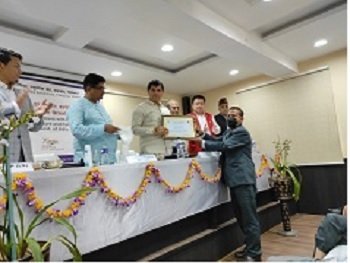The forum invites the industry to the hybrid conference with an accompanying exhibition this November in Nakhon Ratchasima, Thailand
VNU Asia Pacific and DLG (German Agricultural Society) organized the Pre-Networking and Press Event of the upcoming “AGRITECHNICA ASIA & HORTI ASIA Regional Summit – Smart Farming for Sustainable Food Systems” on October 12, 2021. Taking place at DLG’s online platform for the global agricultural community `DLG Connect´, participants took the opportunity to learn about the upcoming summit in November and connect with other experts in sustainable and smart agriculture.
As official co-host of the AGRITECHNICA ASIA and HORTI ASIA Regional Summit, Dr. Thongplew Kongjun, Permanent Secretary of the Ministry of Agriculture and Cooperatives (MOAC) gave the official welcome remark, followed by Dr. Vanida Khumnirdpetch, Director of the Bureau of Foreign Agricultural Affairs sharing Thailand’s vision on Smart Production for Sustainable Food Systems.
The Federation of Thai Industries presented the province Nakhon Ratchasima, which is not only the heart of Thailand’s crop production but also the province where the Regional Summit is going to take place. The innovative companies CLAAS, Varuna AI & Robotics Ventures, Gessner Industries, and Planet elaborated on their contribution to more sustainable food systems, while Mr. Karsten Ziebell from a German-Thai Cooperation Project explained how the concept of cluster farms can lead to more sustainable farming and invited to the 1st Clusterfarm Future Conference.
With this event, organizers and partners aim at introducing the AGRITECHNICA ASIA & HORTI ASIA Regional Summit and invite the industry to the hybrid conference with accompanying exhibition this November in Nakhon Ratchasima, Thailand.
Dr. Thongplew Kongjun, Permanent Secretary of the Ministry of Agriculture and Cooperatives stated in this welcome remark that “the Ministry of Agriculture and Cooperatives is pleased to co-host the AGRITECHNICA ASIA & HORTI ASIA Regional Summit. This summit will serve as a platform where stakeholders, especially farmers and young smart farmers, can exchange and share experiences for future farming together with their existing networks in Thailand and Southeast Asia, which will enable us to foster sustainable food systems. Let us work together for a better future.”
“The UN Food System Summit 2021 as part of the “Decade of Actions” is awakening the world to the fact that we must work together to create the future of food and agricultural systems to achieve the UN 2030 Sustainable Development Goals. In this context, the AGRITECHNICA ASIA & HORTI ASIA Regional Summit is a place where international knowledge and innovations can offer technical solutions to local farmers and businesses”, Dr. Vanida Khumnirdpetch, Director of the Bureau of Foreign Agricultural Affairs, highlighted the importance of collaboration and innovation for more sustainability in agriculture.
Katharina Staske, Managing Director of DLG Thai explained “We are collaborating with quality conference partners, who are leading specialist organizations like the International Rice Research Institute and the Thai Society of Sugarcane Technologists. The combination of experts from the Thai Ministry of Agriculture and Cooperatives and the private sector sharing the latest innovations as well as practitioners demonstrating best practices live from the field will create a unique place for knowledge exchange and networking.”
“The conference with over 70 speakers from Thailand and worldwide will focus on topics such as efficient and sustainable sugarcane, cassava, rice and maize production as well as precision and smart farming, plant protection, water management and cluster farming as well as new markets such as vertical farming and bioeconomy,” added Mr. Heiko M. Stutzinger, Managing Director, VNU Asia Pacific.
The AGRITECHNICA ASIA and HORTI ASIA Regional Summit, to be held as a hybrid online and in-person event on 16 and 17 November, offers farmers and farming specialists from Thailand and South East Asia not only innovative farming systems and a wide range of solutions for improving crop production but also access to a worldwide network of international companies and experts. Under the guiding theme “Smart production for sustainable food systems”, the Regional Summit addresses the challenges of sustainable food production facing farmers from Southeast Asia and especially Thailand. The AGRITECHNICA ASIA and HORTI ASIA Regional Summit event, which is organized by DLG (German Agricultural Society) and VNU Asia Pacific, takes place at the Imperial Hotel and Convention Centre Korat in Nakhon Ratchasima, Thailand, and online at DLG Connect.
Further Information and registration now to get the best deal:
www.agritechnica-asia.com/regional-summit | www.horti-asia.com/regional-summit or group delegation call +662 1116611 (VNU Asia Pacific) to get a special rate.
The forum invites the industry to the














